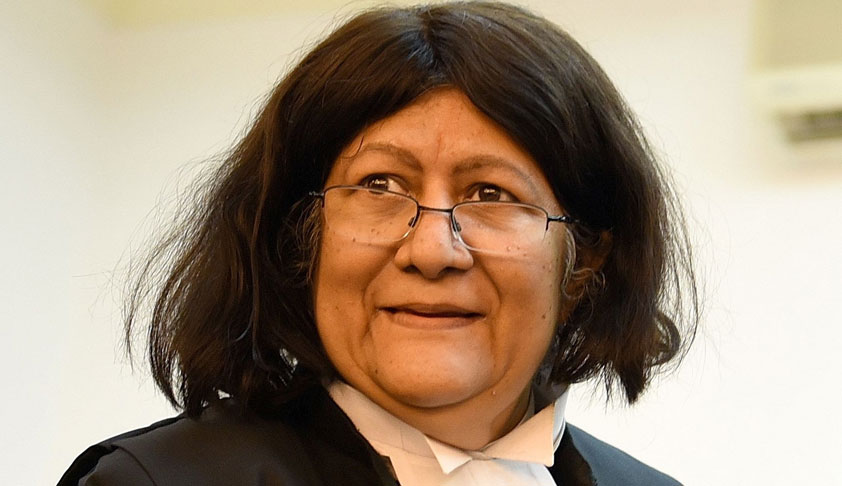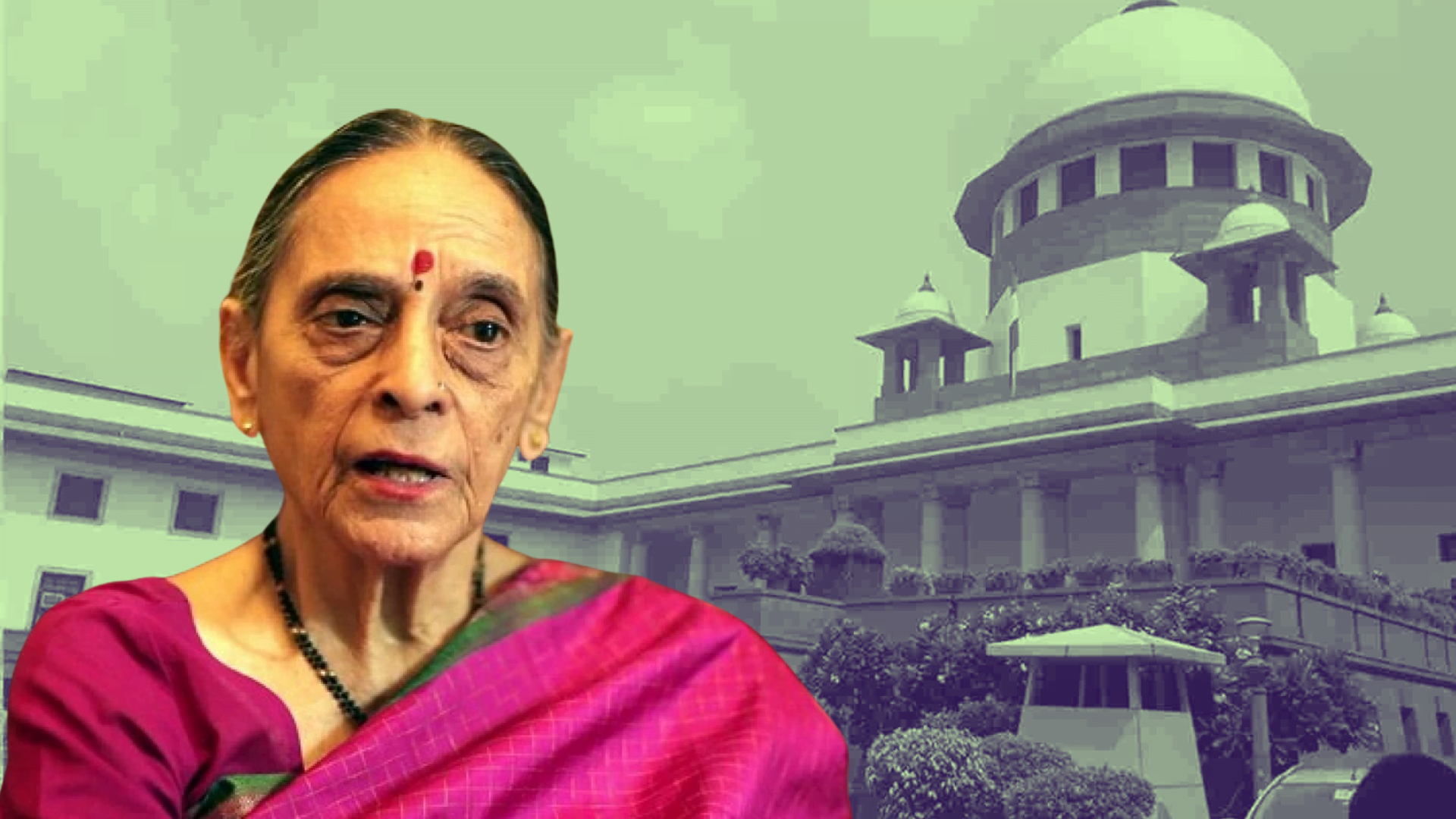May 5 2021, marked the fourth death anniversary of Justice Leila Seth, who requires no introduction. From excelling in the Senior Cambridge examination, the London Bar examination to becoming the first woman Chief Justice of a State High Court (Himachal Pradesh High Court) and the member of the famous Justice Verma Committee, Justice Seth had all to her credit. However, it has become essential to understand and read Justice Seth, especially after increasingly unreasonable remarks on sensitive cases by the courts.
Insensitivity and Indian Courts
The long carried debate on insensitivity arises from the lack of women representation in judiciary, especially in higher judiciary. Recently, this debate resurfaced after Justice Indu Malhotra’s superannuation from the Supreme Court. The count of women judges in the Supreme Court has now reduced to only one sitting woman judge, Justice Indira Banerjee. The strength of women judges in High court remains as low as 82 women judges out of 1,079 judges.
Also read: Tarun Tejpal Acquital: A Judgment On The ‘Appropriate’ Behaviour Of Sexual Assault Victims

It is peculiar to understand that there lies a nexus between sensitisation and representation of women on the bench. In the recent past, instances of insensitive remarks or orders passed by judges of the higher judiciary has irked the collective conscience of scholars, lawyers and litigants. Some of these instances includes the bail order of the Madhya Pradesh High Court, where the court ordered tying of ‘Rakhi’ as a condition for granting bail to the accused or the infamous ‘unbecoming of an Indian women’ remark by the judge of Karnataka High Court, stirs the need for this discussion. Further, senior advocate Indira Jaising in an open letter has argued that how sexist remarks being not called out gives it a sense of legitimacy.
Also read: The Lady of Law and Love: A Tribute to Justice Leila Seth
Justice Leila Seth’s writings give an idea about her understanding of the various nuances of justice administration, and also has a standard string between all the chapters, i.e., women’s representation and their rights.
Representation of women judges on the bench brings the possibility of consciousness towards gender sensitivity. While the stakeholders have opined their views majorly in support of fair representation of women on the bench to curb such instances, it becomes crucial to understand why representation matters?
Why representation matters?
Justice Leila Seth has answered this question in her book Talking of Justice: People’s Rights in Modern India. This book gives an idea about her understanding of the various nuances of justice administration, and also has a standard string between all the chapters, i.e., women’s representation and their rights. This masterpiece is divided into eleven different chapters focusing on various issues from rape laws to widow’s rights. The most concerning chapter for this debate is ‘Gender sensitization of the Judiciary’. One may encounter Justice Seth’s consciousness towards women’s rights in the book’s opening (author’s note). Justice Seth, while reasoning the use ‘he/his’ instead of ‘he or she’ in the book, gives a profound clarification. She puts it as: “law clearly provides that ‘he’ includes ‘she’. Needless to say, it is not to accept that he is better than she”.

Justice Leila Seth starts her argument of gender sensitisation of judiciary with the example of the Bhanwari Devi case, wherein the rape accused were acquitted by the District and Sessions Court, Jaipur. The ludicrously reasoned judgment held that since one of the accused was relatively higher placed in the caste hierarchy, it rules out his possibility of raping a lower-caste woman. The chapter later unfolds other examples of blatant insensitivity towards women. One such case is the State of Punjab vs. Gurmit Singh and Ors., the observations of the trial court shook the judicial conscience. The trial court observed that the rape victim was of ‘loose character’, and later the Supreme Court, strongly disapproved of the trial court’s approach. As per Justice Seth, judges must be careful while pronouncing the judgement, like Caesar’s wife (no one should be able to raise a finger on the reasoning).
Moreover, the idea of representation is laid on the foundation of ‘understanding’. Justice Leila Seth argues that judicial temperament depends upon the thought process of the judge outside the court. On the same note, issues directly concerning women are far more understandable by women judges than a male judge. According to a report of the International Commission of Jurists, a higher number of women on the bench would entrust the women to seek justice and enforce their rights in courts. A fair and diverse representation on the bench tends to bring varied approaches based on the social context.
The Justice Verma committee, with a fair gender representation, pushed for the criminalisation of marital rape, though the government did not adopt it, it sparked the debate on the issue. It is essential to understand that progressive male judges may pronounce pro-women judgments, but the presence of women judges on the bench is likely to increase the chance.
It is essential to understand that progressive male judges may pronounce pro-women judgments, but the presence of women judges on the bench is likely to increase the chance.
Another report by Article-14 compares the Supreme Court’s approach adopted in State (Govt. of NCT of Delhi) vs. Pankaj Chaudhary 2018 and Raja vs. State of Karnataka 2016. The former case heard by an all-women bench comprising Justice R. Bhanumathi and Justice Indira Banerjee held that the moral character could not be inferred even if the victim was ‘habituated to sexual intercourse’. In stark contrast, a bench comprising all-male judges in the latter case with similar circumstances implicated the victim being ‘accustomed to sexual intercourse’. Lastly, having fair representation in the judicial administration tends to lower the possibility of reprehensible instances like Bhanwari Devi case or the Rakhi order. Also, it reduces the tendency of a male judge to be influenced by his predilections.
Also read: What Will Increased Representation Of Women In The Justice System Do
Justice Leila Seth’s optimism enables her to take into account the paradigm changes in the legal profession. She notes the hardship of Regina Guha (1916) and Sudhanshu Bala (1921), both of whom were denied permission to practice law as they were not considered fit for ‘the hurly burly of the legal profession’ and the recent trend of induction of more and more women in the law profession. However, even if women have reached the bar, it is quintessential that they represent themselves on the bench.
In the words of Justice Leila Seth: “Just as one learns a new language when one goes into a new country, so must we learn the language of equality in the hope and with the desire to eliminate injustice.”
Shaileshwar Yadav is currently enrolled at National Law University, Jabalpur and has keen interest in Policy Analysis, Human Rights, Constitutional law, legal and political history. He can be found on Twitter and Instagram.




